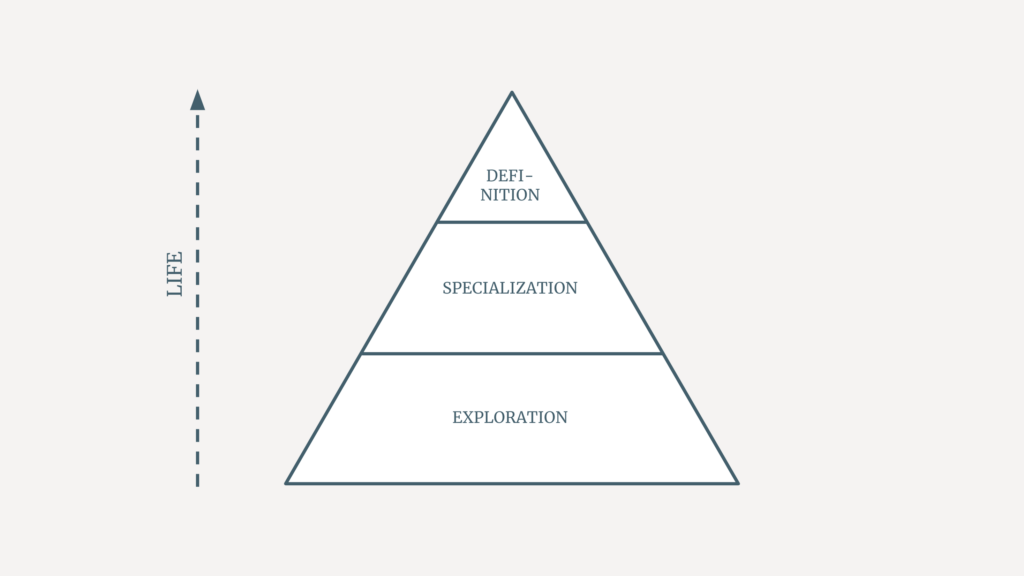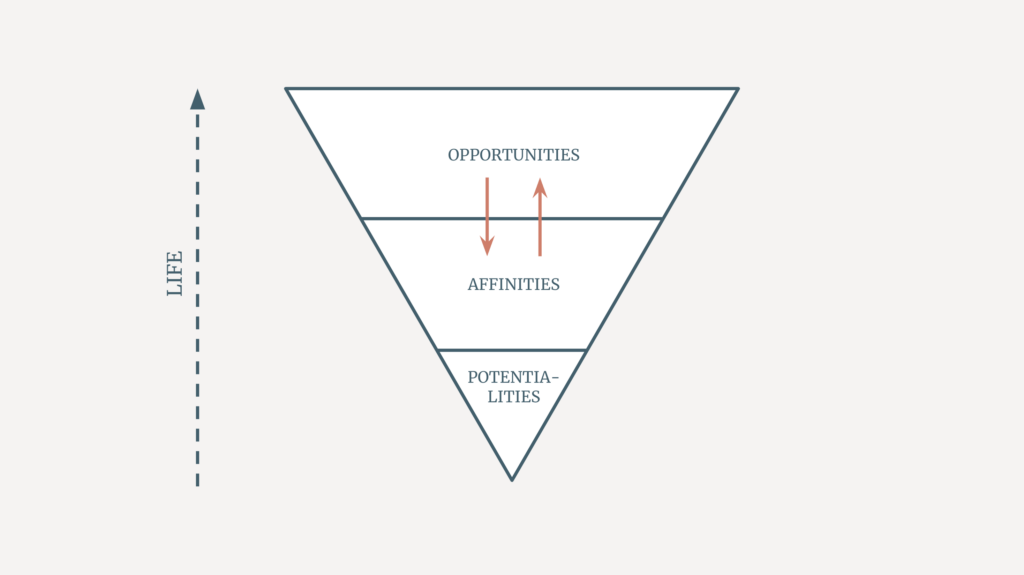“What do you want to be when you grow up?” Adults often as this question when chatting with a kid. Maybe it’s because the answer is often endearing (an astronaut!) or surprising (a YouTuber!), or because it’s a way to connect through a topic that speaks to us—work.
We keep doing this to each other as adults too. “What do you do for a living?” and “Where do you work?” are some of the most common conversation starters when meeting someone for the first time.
When you’re a kid, the world is full of possibilities. Nothing seems to be impossible. No question or topic seems trivial enough not to wonder about it. It’s a wonderful exploratory phase. You may want to try a different sport every week. You have a new best friend every month. You’re into board games and then realize that painting is more your thing. For now. So why do we later insist on this fabricated idea of having one calling in life?
Go forth and specialize
Often, as soon as you start showing a sustained interest in a specific area, adults push you to practice and improve. To make it your thing. It comes from a good place, of course, but it stems from the idea that the more “defined” you are as a person, the better.
Our education system works in a similar way. We are expected to specialize, going from a generalist curriculum covering everything from arts to maths and history to graduating with a degree in one specific area. Then, at work, we hone in on what sets us apart and create an elevator pitch—a short description that gets our value proposition across in one key point or two.
In friendship too. Research shows that the older you get, the fewer friends you have. Growing up is like trying to squeeze through a gradually shrinking funnel, making yourself smaller and smaller until you can describe yourself with as few words as possible.
We become more focused in our interests, our work, and even our friendships. In the words of Rhiannon Lucy Cosslett, a journalist at The Guardian: “Part of growing up is accepting all those things you’ll never be, but which perhaps, in another system or universe, you could have been.”
But does it have to be the case?
Inverting the pyramid of life
In the years since I founded Ness Labs, I’ve had countless conversations with talented, intelligent people who told me they felt lost. Either because they didn’t find joy in their day job anymore, because a project they had poured their heart and soul into didn’t work out, or because the next logical steps in their career were not particularly exciting.
For most of them, it seemed hard to find alternative options because, after years of hard work and smart choices, they were sitting at the tip of the pyramid.

Here is how the pyramid of life normally works:
- As a child, you explored.
- As a student, you specialized.
- Now, as an adult, you can easily define who you are to yourself and other people.
This is the path I have followed for a long time. This is the narrowing path most people will follow. Not because that’s what they want but because that’s what is expected from them.
For the rare few ones with a true calling, research suggests that it may work just fine. But what about the others? The same research shows that searching for a calling leaves us confused and uncomfortable.
Now, you probably see where I am going with this: Why should we look for our one true calling in the first place? Why not invert the pyramid?

Here is what the inverted pyramid of life looks like:
- As a child, we are full of potential.
- As a student, we can explore our affinities.
- As an adult, we open up a world of opportunities.
In this paradigm, the potential you have as a child is just the beginning—the tip of a cone of creativity that widens as you grow up. Because you’re optimizing for opportunities and not trying to define yourself through specific expertise, you can keep expanding your playground all your life.
The inverted pyramid of life can apply to studies, work, but also friendships. Children have neighborhood friends, school friends, friends from a sports team or an art club. As an adult, we tend to only have a couple of friends outside of work.
But we can significantly expand our circles and choose new friends consciously. What if you had a friend who loves hiking, another who enjoys nerding about technology and tools, and another who is always excited to try new foods together?
What if you had friends all over the world, who you know you may only meet in years to come, if ever, but who share your interests?
This ability to identify yourself across multiple domains and roles, which researchers call “self-complexity”, has been found to support emotional resilience by reducing the impact of failure or setback in any single domain. You may lose your job but still be a great friend. Your startup may fail, but you may run your first marathon with your partner. You may be rejected from your dream school but win a poetry prize.
The self-complexity that arises when we invert our pyramid of life also encourages personal growth and self-discovery, as you can explore and evolve across various aspects of your identity, which means a richer, fuller life.
When you stop trying to nail down your narrative and focus only on the most obvious relationships, life becomes a giant sandbox where we can learn anything, grow in any direction, and connect with anyone. Maybe then, instead of asking, “So, what do you do for a living?” we’ll start asking: “So, what makes you feel alive these days?”
